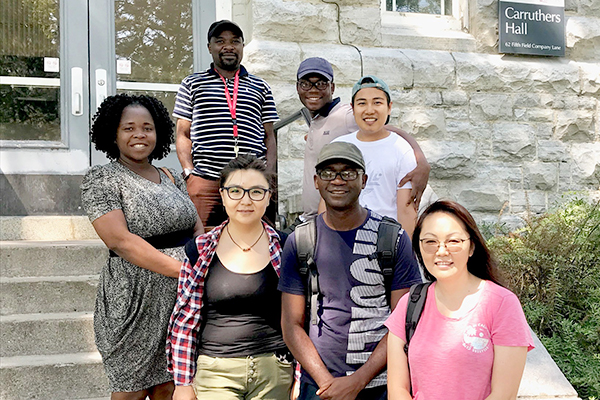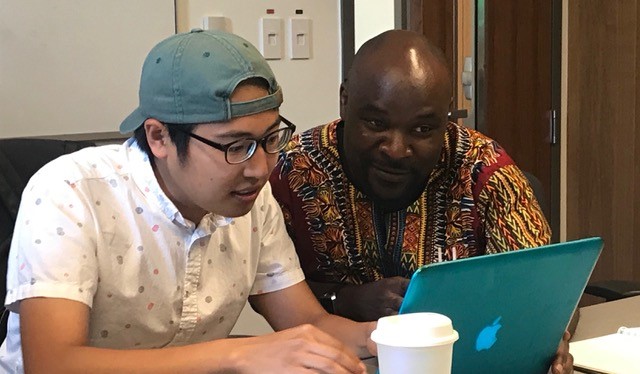Mobilizing international academics
August 12, 2019
Share

Seven international scholars travelled to Canada this summer to participate in the Queen Elizabeth Scholars program and work with researchers based at Queen’s University. Hailing from Mongolia, Democratic Republic of Congo, Zambia, and Ghana the team is working to address factors that contribute to maternal and child health inequities among disadvantaged groups within the Kingston area.
Their work will result in new research dedicated to understanding barriers to accessing maternal and child health among equity-seeking groups; strategies for addressing these barriers; development of a network focused on equity, and improved research capacity and strengthened relationships in and across all partner institutions.
The aim of the Queen Elizabeth Scholars program is to mobilize a community of young global researchers through inter-cultural exchanges comprising international education, discovery and inquiry, and professional experiences so they can bring those experiences back to their home countries.

“The program is very useful and for me as a lecturer and researcher,” says Munkzaya Mandakh, a PhD candidate from Mongolia. “First off, I have strengthened my command of the English language, then I have enhanced my knowledge studying in a developed country like Canada. For me it was the personalized approach of training and responsiveness of all staff to the needs of each trainee which I think are unique characteristics of Queen’s.”
At Queen’s, the QE Scholars are hosted by ARCH - A Research Collaborative for Global Health Equity which includes Queen’s professors Heather Aldersey, Eva Purkey, Colleen Davison, and Susan Bartels.
“The QES project has presented amazing opportunities for collaboration with international partners,” Dr. Purkey says. “It has built my own research capabilities and allowed me to practice mentoring colleagues across cultures and geographic locations. It is my hope that this will produce ongoing partnerships not only with existing scholars, but with their institutions, as well as possibilities for further network development.”
The group has been working with the Street Health Centre in Kingston. The facility is a 365-days-a-year harm reduction health centre that specializes in providing accessible, responsive, health services to communities that are marginalized from mainstream healthcare services.

“Having QES scholars and mentors has been an amazing opportunity for Street Health Centre,” says Meredith MacKenzie, who works at the centre. “This has given us a chance to have resources to investigate some growing areas of practice that may influence policy and program development for clients in Kingston.”
Leaving at the end of August, the scholars have received a number of benefits from their time at Queen’s and in Kingston.
“Most importantly I have gained the knowledge of writing winnable grant proposals and the professional networks I have formed will definitely be very important for my career development,” says Masauso Chirwa, a scholar from Zambia. “I have received tremendous support from Queen’s, an ideal place for professional development through seminars and paper presentations. I’m the coordinator for postgraduate studies in my home country, thus, this will give me a platform to share the acquired knowledge not only with the academic staff but also postgraduate students.”
Learn more about the Queen Elizabeth Scholars program.